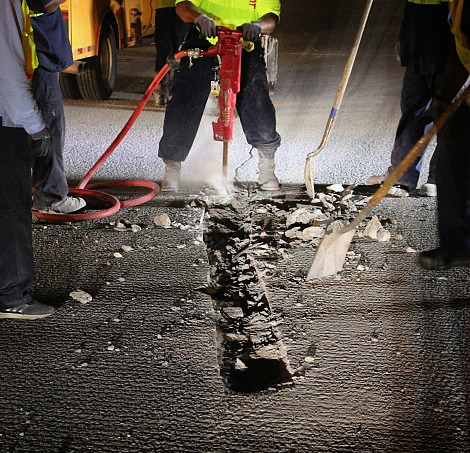Resinous flooring, otherwise known as fluid-applied or poured flooring, is very common in industrial and commercial environments.
Some of the benefits of resinous flooring are that its properties allow for a smooth, non-porous, easily cleanable surface that you cannot achieve with any material having grout or seams.
In this post, we’ll cover the basics of resinous flooring, as well as a few of the different types of chemistries that can be used in commercial flooring applications, depending on the needs of the facility.
Resins can be a natural or synthetic liquid substance and sometimes have a yellowish or brown color. Resinous flooring consists of specific resin formulas applied in several layers that bond together either adhesively or chemically. Once “cured” the layers form a hard surface which has various performance properties such as UV stability, abrasion resistance, or chemical resistance, among others.
Let’s explore four of the most commonly used chemistries in resinous flooring and coatings along with some pros and cons of each. It’s important to take all environmental factors into consideration before choosing a particular type of flooring.
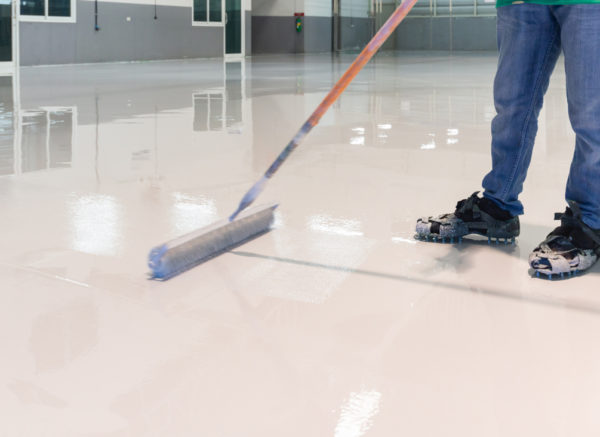
1. Epoxy
Probably the most well-known chemistry in resinous flooring, epoxy is one specific class of polymers that contain epoxide groups, hence their name. There is an extremely large range of quality in epoxies, and flooring and coatings typically fall in the middle of that range. We’re not using the same high-end formulations that NASA is using.
The number of system designs using epoxy is endless and covers a wide spectrum of styles, from thin mil all the way to troweled down mortar systems. A few pros for using an epoxy system is its relatively reasonable material cost. Epoxy flooring systems usually have an attractive high gloss finish, and, depending on the formulation, can be zero VOC (volatile organic compounds).
Some cons to using epoxy is that not all epoxies are formulated or produced with the same quality. For example, there is a big difference in residential grade versus industrial grade epoxy. Typically they all have a long cure time (8 – 12 hours) and that cure time only amounts to 95% cure. Reaching 100% cure usually takes up to seven days. Epoxy is also not UV stable, which means that it will eventually yellow and color shift when exposed to UV light. This is especially important when using in an area exposed to sunlight or fluorescent light for extended periods such as grow houses or exterior applications.
Res-Tek’s EPO-Guard line offers high quality as well as greater UV stability than some other brands.
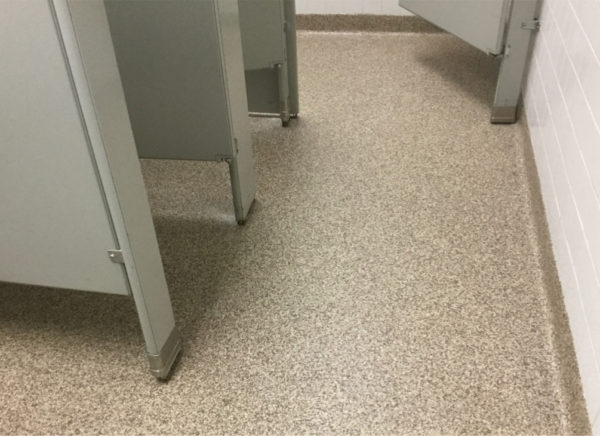
2. Methyl-methacrylate (MMA)
Next on our list is a lesser-known chemistry, methyl-methacrylate, or MMA for short. MMA is an organic compound that is most commonly used in acrylic plastics like plexiglas or airplane windows. Pharmaceutical grade MMA is even used as a cement in joint replacements, like a hip.
Known for its durability, MMA makes a great base chemistry for flooring and coating systems. The two best things MMA has going for it is its ability to cure 100% in one hour down to -15°F or up to 100°F and for being UV stable which means it can be installed outdoors without yellowing over time.
The two main cons of MMA is it has a relatively higher material price compared to epoxy or other resinous flooring. The second is that it does give off an odor during installation. It has been described as a sharp, fruity aroma or one that’s similar to a nail salon. That odor does need to be managed and considered during any MMA project but is not usually a problem when proper ventilation methods are implemented.
MAC-Guard is Res-Tek’s flagship MMA product line and a chemistry in which we specialize.
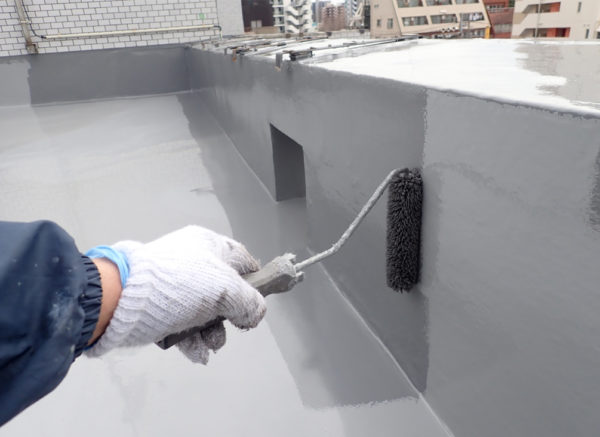
3. Urethanes
Urethane coatings are typically applied at a thin millage and as a final topcoat or seal coat to other flooring systems. Urethanes are most commonly created by reacting isocyanates with polyols. Other than floor coatings, urethane chemistry can be used in direct metal paint, truck bed or tank linings, and just generic waterproofing.
Urethanes for flooring topcoats are known for their high abrasion resistance, chemical resistance, and also for being UV stable. Most urethanes see their best usage in large, high traffic areas or over the top of an epoxy system. The downside to urethanes is their sensitivity to moisture and temperature fluctuation. It must be installed within a certain temperature range. Also, like epoxies, urethanes have a longer curing time varying between 8 to 24 hours.
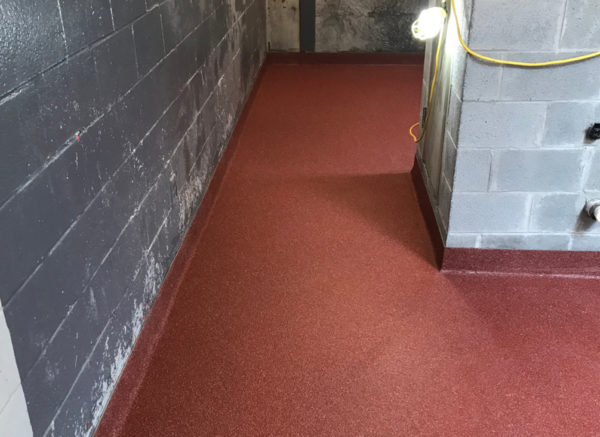
4. Urethane Cement
The last major chemistry we’ll discuss is urethane cement, also known as cementitious urethane, and it is exactly as it sounds, a urethane that is modified with cement. Urethane cement has become a mainstay in resinous flooring due to its toughness. Two of its main strengths are that it can withstand thermal shock up to 240°F and that it can be moisture resistant up to 20 pounds by calcium chloride test or 99% RH by in situ probe testing.
Some negatives to urethane cements are slower cure times, 8 – 12 hours between coats, and the install temperature needs to be maintained between 60°-80°F give or take. Still, the pros of being extremely durable and tough can typically outweigh the cons depending on your project. PUR-Guard is used in many of our projects and continues to perform well.
Now that we’ve covered these four main types of resinous flooring, a word about topcoats.
Different performance objectives can be achieved by choosing an appropriate topcoat, since this is what will be the first line of defense to your flooring system.
In our new product line XCL-Guard, often used in commercial kitchens, urethane cement is used as the body but different topcoats like MMA, polyaspartics, or urethanes still give the customer the performance or the look that they’re trying to achieve in their facility.
We do have to give an honorable mention to polyaspartics that are mostly used as topcoats and sometimes as broadcast coats. They can be a little pricey but are UV stable and can cure in one to six hours depending on your on-site conditions or the formulation.
We hope this has been helpful in explaining what resinous flooring is and some of the different types of chemistries that can be used depending on your needs. If you’d like to learn more about what type of system might be right for your situation, please contact us or call 888-737-8351.


